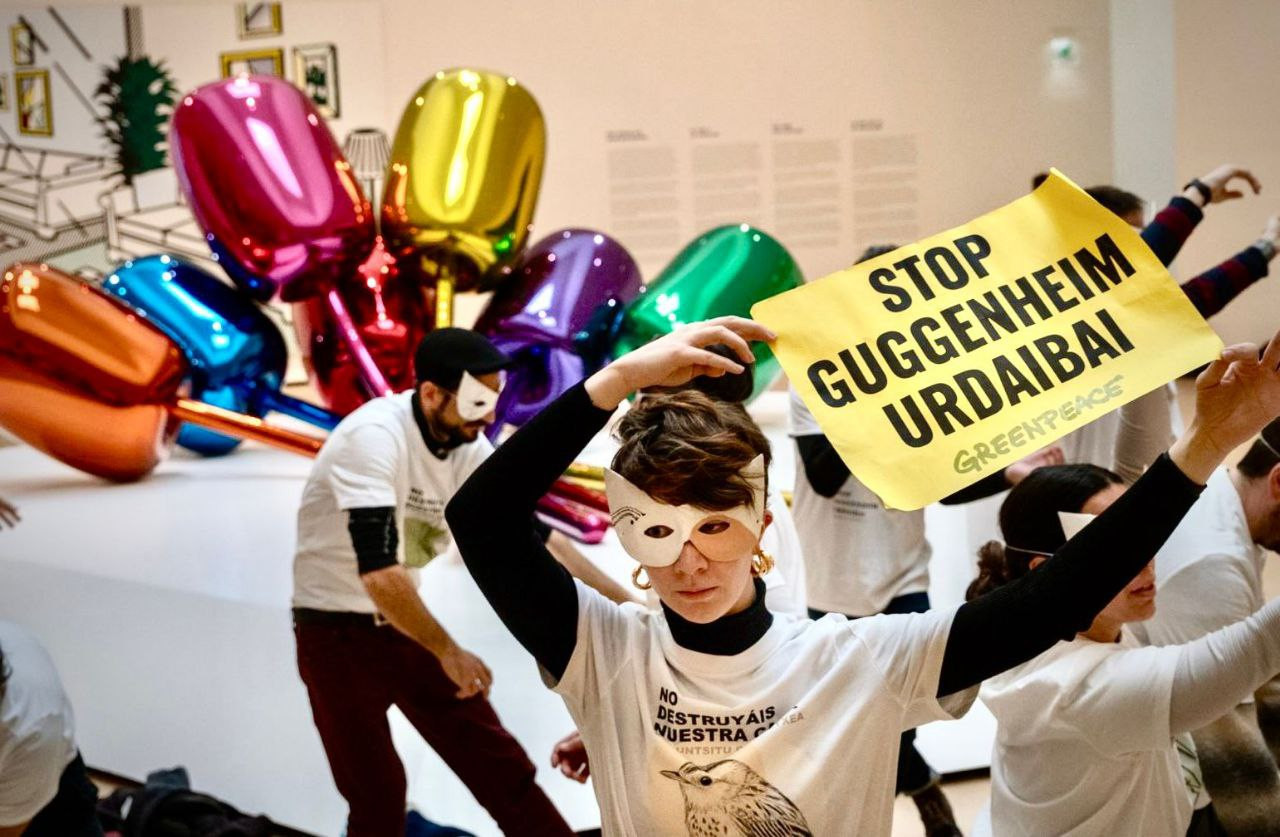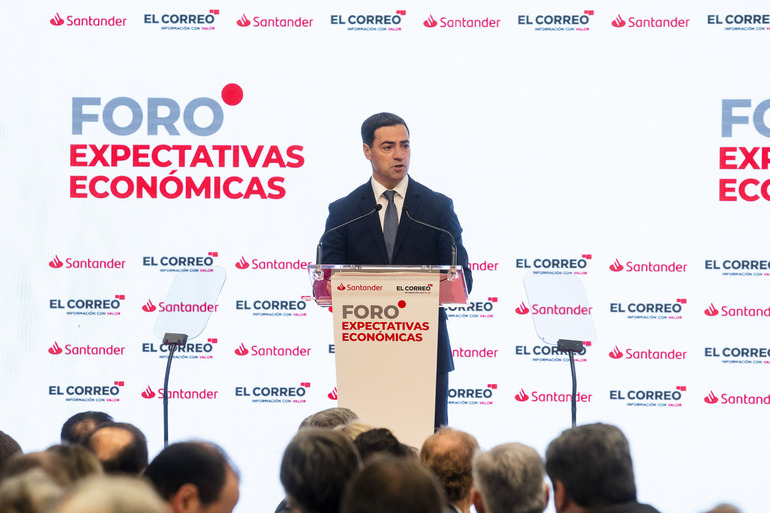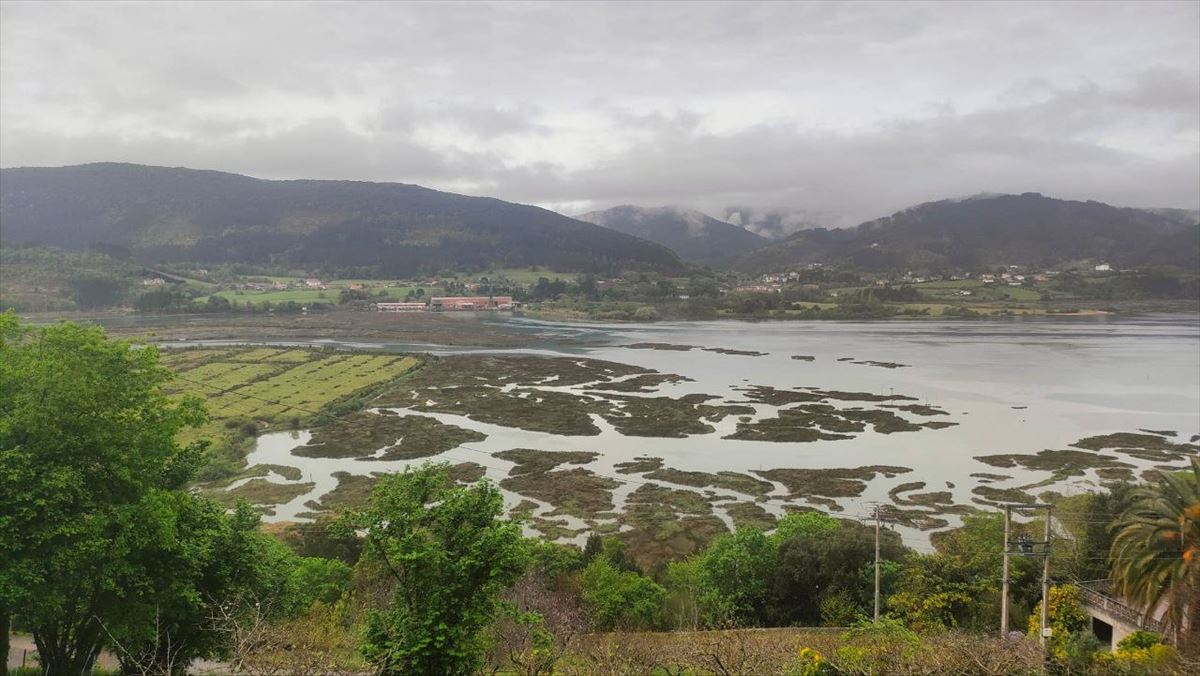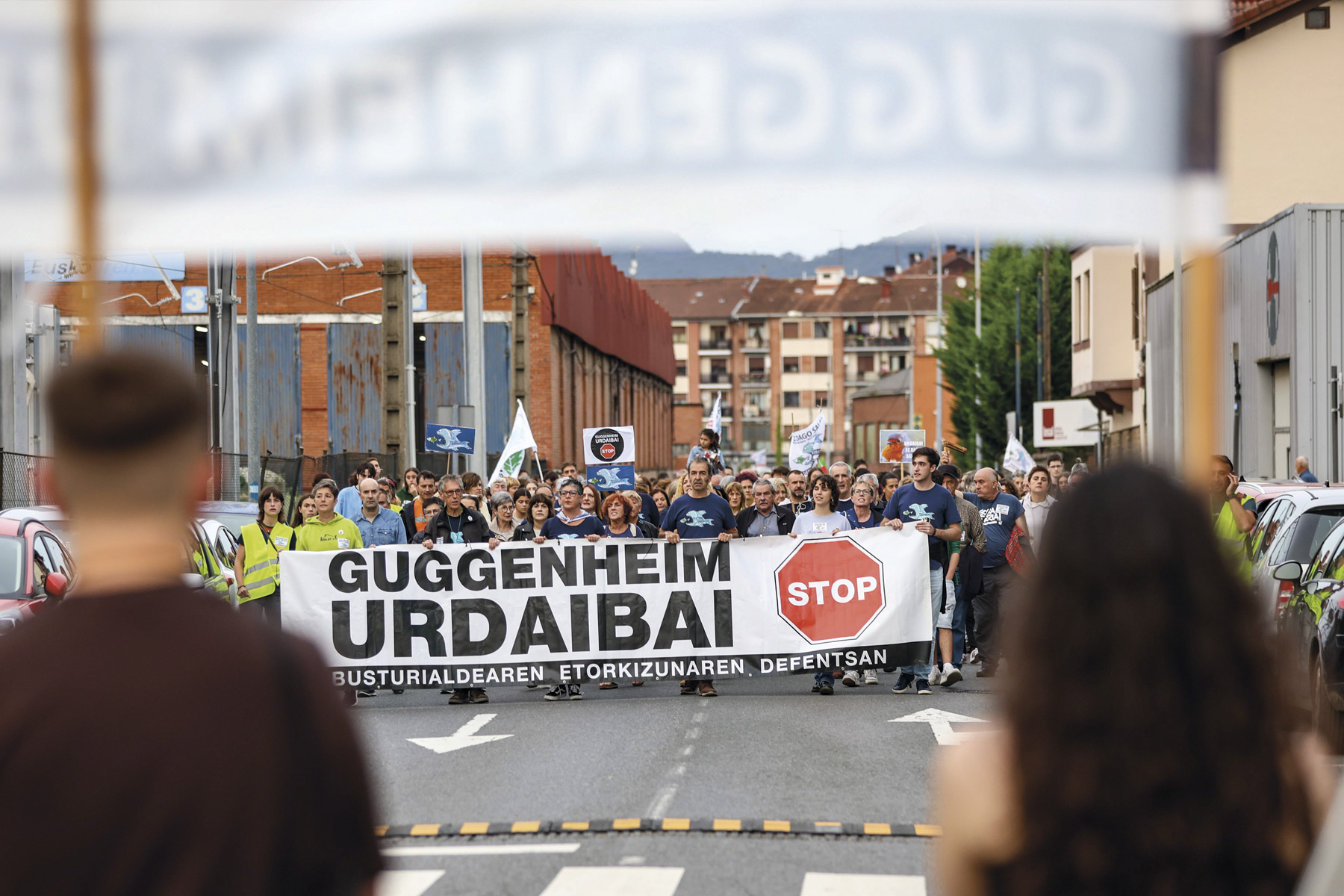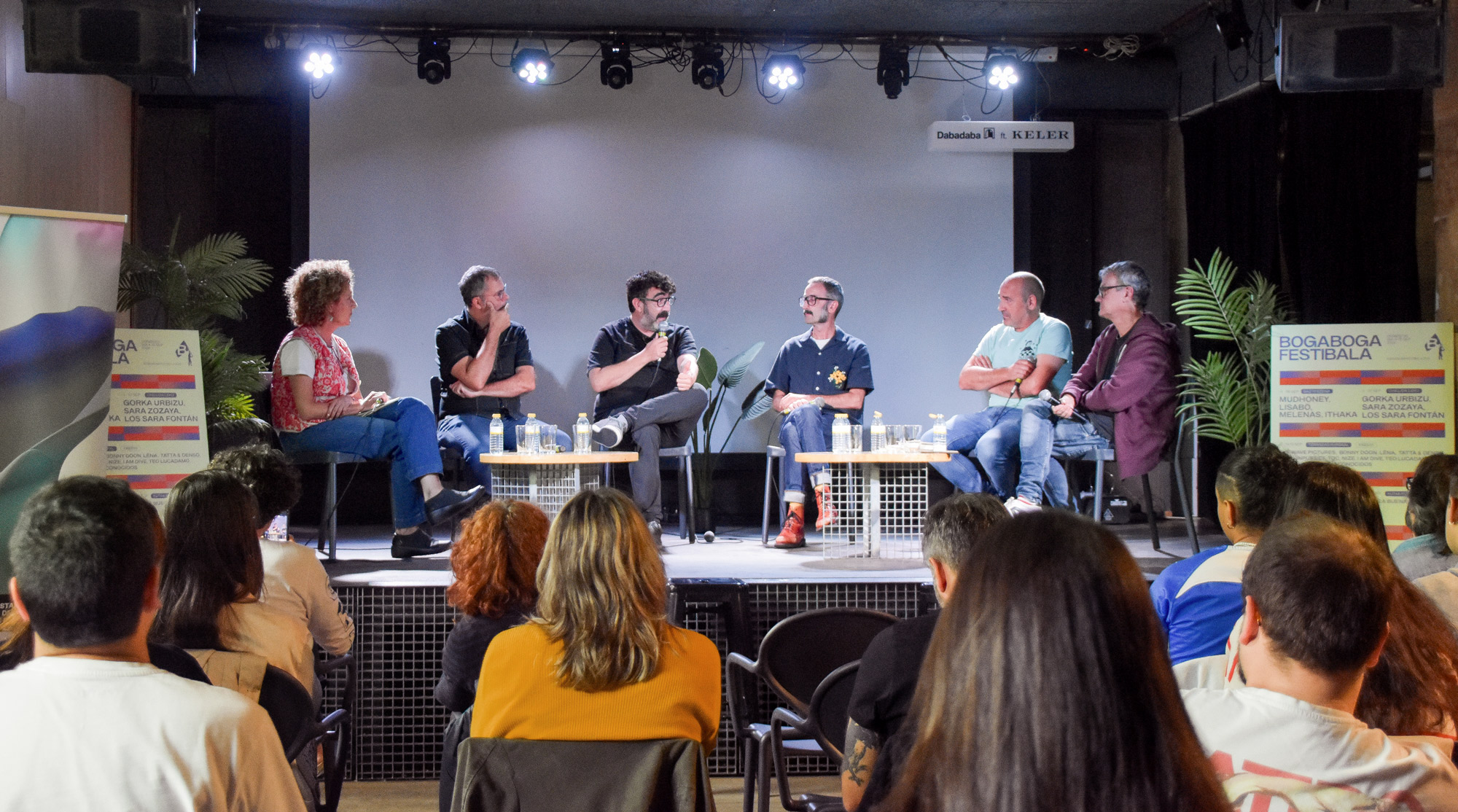"Culture helps us to be critical in college and to be self-critical."
- Two years ago, the philosopher, writer and professor of the UPV Antonio Casado da Rocha took over the cultural activities of the Gipuzkoa campus. Since then, there have been several changes and he has explained that this course will take "a big leap". “We want to get in touch with the areas of creation and knowledge,” he explained.
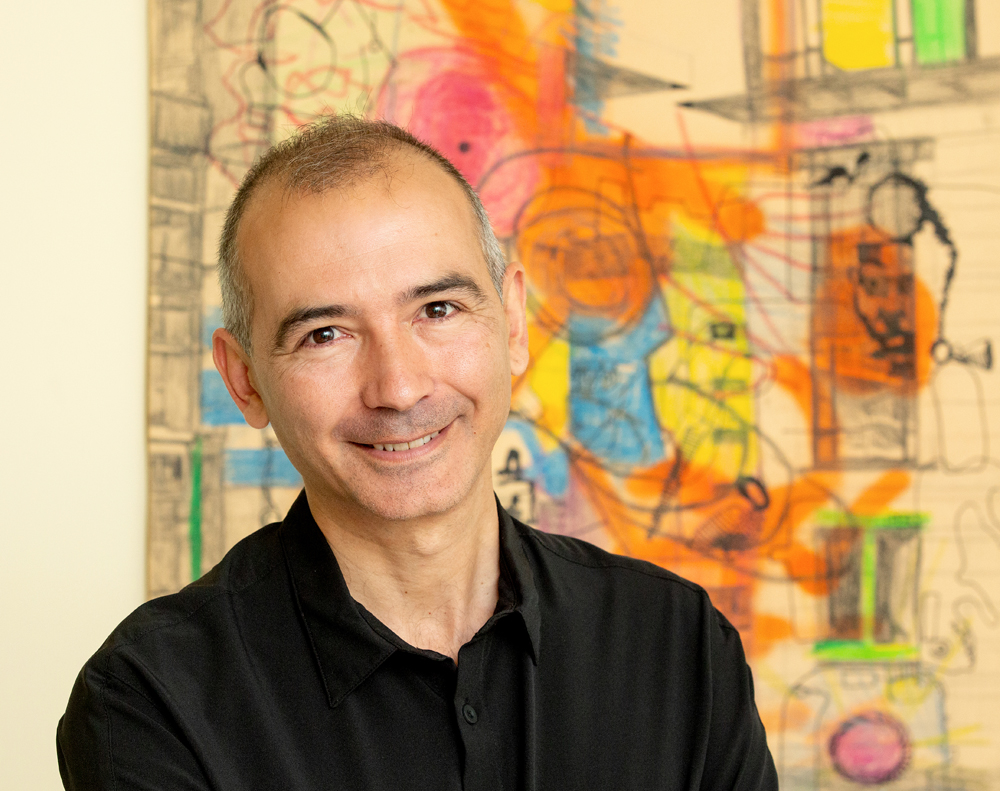
Two years ago he was appointed head of Projection of the Gipuzkoa Campus of the UPV/EHU. What are the functions of this responsibility within the university?
When the university is represented, there is almost always talk of teaching and research. But universities have a third function that is sometimes forgotten: to socialize that knowledge that is generated and transmitted, to diffuse it outside the laboratory or the classroom. It is the expansion that appears in our motto “Eman ta zabal zazu”. I haven't stopped working in teaching and research, but my goal is to merge that college culture that goes beyond the classroom and the lab with the whole of society. We designed and carried out the EHUkultura programme, in collaboration with colleagues from Gipuzkoa, Álava and Bizkaia. In addition, I collaborated with the team of Vicerrector Agustín Erkizia, managing some activities and resources of the Campus such as the Ignacio María Barriola Center and the Txillardegi Exhibition Room.
When you arrived, what panorama did you find?
It was and is plural: We're 10,000 people who work, research and study on this campus. We are the mirror of society and we have it all, but there are great capabilities, many times without realizing it. One of the largest concentrations of talent throughout Gipuzkoa, but very dispersed and atomized, each in its corner. Two out of three students study in Euskera, but until recently, by tradition or inertia, most cultural activities were carried out in Spanish. We are gradually changing.
"Two out of three students study in Basque, but until recently most cultural activities were carried out in Spanish"
What's new?
This year we will make a big leap by organizing special cultural courses open to everyone: We have signed Andoni Tolosa, Gari Garaialde, Pep Ribadeneyra and Pello Otxoteko to offer singing, photography, composting and poetry workshops in Basque once in the afternoon. With the collaboration of Chair Mikel Laboa, Petti and MICE will offer performances and lectures on Basque music with the help of the Mintzola Foundation, bertsos sessions and meetings to help oral creation; a congress on Basque thought and the work of Joxe Azurmendi in December...
In addition, we have given special importance to the exhibition hall of the Carlos Santamaría Center, which gives free admission to university artists and their surroundings, especially to the amateurs. After more than twenty exhibitions in these two years, I think it has become a success that we had not anticipated. We've taken away other things that didn't work, for example, organizing film cycles in general doesn't make much sense in this city full of movies. But we have signed agreements with Kresala and Tabakalera so that our students can enjoy discounts on their performances. Another change in the strategy is the collaboration with the different cultural and linguistic communities and agents of the territory. This year we have launched a partnership with Alliance Française and next year we will continue with the Italy Txiki partnership. In addition, the Elias Querejeta Film School has joined the campus by integrating this innovative center at the international level at the public university.
He has used the concept of “community of practice” to describe some of the campus experiences. Would you explain what that is?
The idea is very simple: the community of practice is a group in which members share a hobby, a trade or an activity; the members of the group meet informally to learn from each other in that practice. They are auzolans to respond to a particular problem or passion, and I think culture is something like this: auzolan.
You have given importance to the processes to invigorate the cultural life of the university. What is the difference between this approach and the usual cultural groups?
The objective is to promote comprehensive education, comprehensive education and make it available to all citizens. The university does not depend on the cultural industry, but the cultural industry needs a university: It was created by Tolkien Oxford, not by Hollywood. Most of our activities are free, simple, we don't organize mass events. The goal is to have a good time and enjoy the culture, so that at university not everything is e-mail and screen. The goal is to know what we are and what we do on campus and to foster the relationships between us. In fact, the relationships and experiences that take place at the university stage are a treasure for life.
What do those relationships have that don't have those that happen in classrooms or in seminars?
I'm a philosopher, so I'll answer you by asking: How many ideas, how many companies have been born in campus cafes? How many comics, band and fanzine? I studied in Ireland, in Cork, where there were no seminars that would not end up in a pub. But today we spend less and less time in campus cafeterias, the socialization areas have changed. If they are different, we will have to look for them and deal with them.
Can culture be an antidote to the lack of connection students can feel with the university?
There is such a lack of connection, but it is not the fault of the students. To some extent, the “moderate collapse of dreams” is natural in any student’s educational process. This is not an army or a football team, but a meeting point between students and teachers. A geographical metaphor is that of the university: a group of houses, a small city, and ours has many neighborhoods; a point of conflict or despair is inevitable. But maybe that's why, surely there's no more democratic institution in our environment than the public university. All the positions are chosen by us and everything has to be agreed with all the agents. Therein lies its autonomy and also its inertia. A great university will never be perfect, but if it has no culture it is not able to make a fundamental critique. Culture helps us to be critical at the university, but the university is done by us, so we also have to be self-critical.
"A great university will never be perfect, but if it has no culture it is not able to make a fundamental critique"
Regarding the activities of the Campus of Gipuzkoa, it seems that they understand culture in a broad sense: artistic activities yes, but there are also workshops more related to everyday life, such as composting.
I don't believe in the cultural distinction above and below. I believe that we have to protect the useful knowledge, which is transversal, which does not enter the degree offer. For example, the democratic culture based on human rights, the ability to participate in debates, is culture. Scientific culture, besides being the key to understanding our world, is culture. There are also issues of ecology and sustainability; I hope that we can see the garden on all the campuses; in short, agriculture is also our culture.
Compared to traditional festivals, it seems that events that encourage people to participate have been strengthened.
I think there's something important in festivals: culture is a celebration, it's related to party, it loves ritual and repetition. But if you don't make friends at a party, it's over! So what interests me most is the culture of small festivals, and some of us organize them ourselves, in collaboration with Donostia Kultura. Through these festivals, we try to stage people on campus and around them.
The students of the University intend to do things for themselves, although there is also a opposite trend: to consume culture, not create. We have to strike a balance: make the resources available, keeping the public character; help, but all equally, and not give it all done.
The Vicerrectorado has entrusted the newly created theatre association with the establishment of the theatre on campus.
In order to boost cultural activities, we have worked with the same collaborators, who were repeated year after year, and this year we have had to renew them by changing the model. Until now it was vertical: the Vice-Rectorate chose the artistic director, who decided everything else, somehow outsourcing the service. But inside the campus there are people with experience and proposals in theater: our students, teachers, researchers and staff. Why not give them decision-making powers? We have done so following the model of the best universities, where they manage university life through associations. In the UPV/EHU there were orchestras, choirs, tamerades and debate societies, and now there is another: Association of University Performing Arts (UNEA), newly created on the campus of Gipuzkoa.
Another important feature is that they will promote rotation in the driving of each program. Do new teachers attract new people?
That's right, teachers have always been our tractors. In culture, we also need mentors, people who share their experience and their passion. But for the landscape to be as broad as possible, for the land of creation not to run out, each course is repeated once and it is already there. We must seize the opportunity! Through rotation we protect diversity and avoid inertia, accommodating new ideas. By the way, this will also help us find a balance between genders and styles. We need to make creative women more visible.
Another axis is to give a practical dimension to all courses.
That's another head breaker. What is a culture course? How does it differ from the others that are done in college? The conclusion we have drawn is that this practical dimension is essential and that is why in each course we would like to create together a result that we can share with the community: an exhibition, a space of composting, a collection of videos or short texts, a musical or theatrical performance...
We do not want to decide in advance what culture is, and on the other hand we do not want to have a resource sharing machinery, where a programme or a cartel is drawn up allocating funding between the plaintiffs. What we want to promote is a more horizontal relationship, where the communities of practice are the protagonists: people who live and share culture and hobbies.
We have known Aitor Bedia Hans, a singer of the Añube group for a long time. At that time we were reconciled with BEÑAT González, former guitarist of the Añube group. It was at the university time, when the two young people of Debagoiena came to Bilbao to study with music in... [+]
Two years ago Urdaibai Guggenheim Stop! Since the creation of the popular platform, Urdaibai is not for sale! We hear the chorus everywhere. On 19 October we met thousands of people in Gernika to reject this project and, in my opinion, there are three main reasons for opposing... [+]
With this article, the BDS movement wants to make a public boycott of the event to be held on 24 September at the Guggenheim in Bilbao. In it, they will have the presence of the renowned Zionist artist, Noa, who will present his last record work.
When, in the context of the... [+]
Mende batean, Baionako Euskal Museoak izan duen bilakaeraz erakusketa berezia sortu dute. Argazki, tindu edo objektuak ikusgai dira. 1924an William Boissel Bordaleko militarrak bultzatu zuen museoaren sorrera, "euskal herri tradizionalaren" ondarea babesteko... [+]











